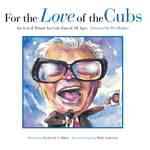- ホーム
- > 洋書
- > 英文書
- > Politics / International Relations
基本説明
Explores the broad policy options available to the US government, analysing the interplay of contending policy elites, factions and parties influencing foreign policy making today.
Full Description
As the world s only superpower, America s foreignpolicy inevitably has a major impact D be it positive ornegative - on contemporary international affairs. Since theterrorist attacks of 9/11, George W. Bush s decision to moveaway from multilateral decision-making toward a more aggressive,pre-emptive style of foreign policy attracted widespread debate,and criticism, throughout the world. Reversing direction, theBarack Obama presidency is placing greater emphasis on constructiveor peaceful engagement within multilateral frameworks, relying onspecial envoys to deal with some of the thorniest problems. In this book, Paul Viotti explores American foreign policy from thefounding of the republic in the late 18th Century to the presentday. Part 1 examines the broad policy options available to the USgovernment: namely, peaceful engagement, containment throughdeterrence or coercive diplomacy, and armed intervention. Part 2looks at the American experience in foreign policy.By exploringearly precedents and elite practices, the moralism of Americanexceptionalism as well as the roots of an expansionist Americanforeign policy, the discussion draws out the continuities runningfrom the 18th century to the present. Part 3 concludes with ananalysis of the politics of interest on the Potomac with analysisof the interplay of contending policy elites, factions and partiesinfluencing foreign policy making today. Assessing alternatives, the author concludes that even thoughcontainment and armed intervention will remain part of the way theUnited States conducts its foreign policy, diplomatic engagementoptions are the most promising course of action for the comingdecades.
Contents
* Foreword by Kenneth M. Jensen * Preface and Acknowledegments * Introduction * Part One: Peaceful Engagement, Containment and ArmedIntervention * Chapter One: Peaceful Engagement and Diplomacy * Chapter Two: Containment of Adversaries * Chapter Three: Armed Intervention and Warfare * Part Two: Foreign Policy in the American Experience * Chapter Four: Institutionalized Elite Practices and theMoralism of American Exceptionalism * Chapter Five: Intervention and ExpansionismNAcquiringTerritory, Spreading Ideas, and Pursuing Other Interests * Part Three: Theoretical Reflections and PracticalExpectations * Chapter Six: Elite Understandings of Power * Chapter Seven: Politics on the PotomacNInterests, Elitesand Parties * Chapter Eight: Presidential Power in Politics on thePotomac * Conclusion * Selected Readings








